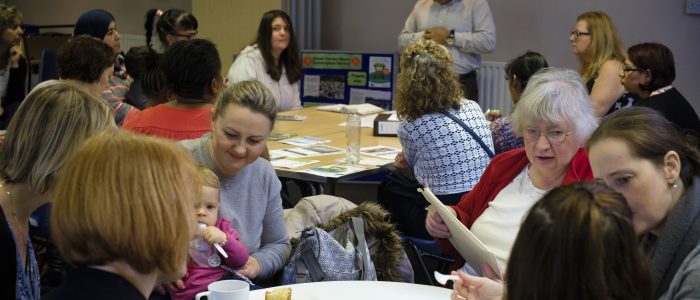What social prescribing can learn from election day

Election day is now upon us, and voters up and down the country are heading out to their local polling station to cast their ballot…
Wherever I have lived over the years, this has—more often than not—meant walking around the corner to a local place of worship or community centre. There’s a reason these kind of places are used for polling stations: they are visible, accessible and right at the heart of communities. And, as argued in our recent report on the faith-based response to loneliness, these are precisely some of the reasons why places of worship and faith-based community centres are also invaluable assets to the health and care system.
I was recently speaking with a lady, Hanima, in one such community centre. She had rheumatoid arthritis and mental health problems, and had just finished a Pilates class. I asked her what had made the biggest difference to her pain management. “Coming here,” she told me. “I’d been going to my GP for years with pain issues and they just sent me away and told me to ‘take it easy’. Finally, I was diagnosed and given medication. But, really, it’s exercise and support that has made the biggest change.”
A friend had recommended the Pilates class to Hanima. We can’t know for sure how things might have been different if she had been told about it by her GP years ago—before she even had a diagnosable condition—but clearly there’s a problem if little real help is offered until she is at crisis point, and, even then—it seems—only strong painkillers.
It is the kind of situation that the NHS hopes will change with the national roll-out of social prescribing promised in the Long Term Plan. If you don’t know, social prescribing is a way for people to be referred to non-medical, community-based services, such as exercise, lunch clubs, community choirs and gardening groups. It is estimated that around 1-in-5 GP appointments are for problems—like loneliness and social isolation—that would be best addressed this way. And there is little doubt, as shown by my conversation with Hanima, that taking a whole-person approach to health can make a significant difference to chronic illness too. Access to these services, so the thinking goes, will give people the kind of preventative, personalised care that can make a lasting difference, whilst also reducing the strain of non-medical appointments on the NHS. A win-win for everyone.
Yet, in my experience, mention of social prescribing can elicit a range of responses from people; from enthusiasm through to eye-rolling. There are indeed several unanswered questions. For example, what kind of support will be given to the grassroots community groups that step up to deliver? And what will happen to the numerous voluntary sector-based social prescribing initiatives already in place; how do we ensure successes and failures are learned from and not repeated in the restructure? Finally, what about the social prescribing ‘link workers’ themselves—those individuals who will be doing the prescribing on behalf of GPs—how will they be supported to ensure that the full range of voluntary-sector provision is mapped and incorporated, including faith groups?
At FaithAction, we think social prescribing has the potential to make a significant positive change to the health and care system, and that’s why we’ve included it as part of our Faith Manifesto for 2019. But we’re keen that the NHS does not miss a trick when it comes to drawing upon the wealth of delivery experience and local knowledge of faith groups on the ground.
Because, no matter now “visible” local places of worship may be—and how much foot traffic they will be getting today!—when it comes to health and social care, many outstanding programmes and initiatives are still ‘under the radar’. The mapping and resourcing of these hidden gems—like the Pilates class that made such a difference to Hanima—must be right at the top of the agenda of those involved in making social prescribing happen.



